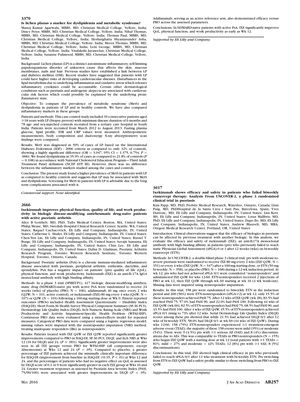Is Lichen Planus a Marker for Dyslipidemia and Metabolic Syndrome?
April 2016
in “
Journal of The American Academy of Dermatology
”

TLDR Lichen planus may be associated with a higher risk of metabolic syndrome.
The study from 2016 investigated whether lichen planus (LP), an autoimmune inflammatory disorder, could be a marker for dyslipidemia and metabolic syndrome (MetS). The case-control study included 39 patients with biopsy-proven LP and 78 age- and sex-matched healthy controls. The participants were evaluated for MetS using the International Diabetes Federation criteria and for dyslipidemia using the National Cholesterol Education Program-Third Adult Treatment Panel definition. The results showed that 59% of LP patients met the criteria for MetS compared to 32% of controls, which was a significant difference (OR=3.047, P=.006). Dyslipidemia was found in 35.9% of LP cases versus 21.8% of controls, although this difference was not statistically significant (P=0.108). There was no significant difference in inflammatory markers between the two groups. The study concluded that there is a higher prevalence of MetS in patients with LP compared to healthy controls, suggesting an association between LP and MetS as well as dyslipidemia. The authors recommend screening for MetS in patients with LP due to potential long-term complications. No commercial support was identified for this study.

